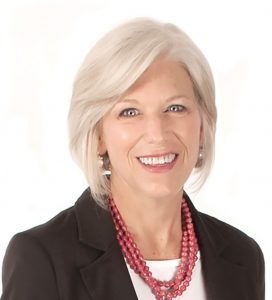Editor’s Message
*This is an article from the Winter 2022 issue of Contentment Magazine.
Cynthia Ackrill, MD, PCC, FAIS
Editor
A good laugh and a long sleep are the best cures in the doctor’s book. — Irish Proverb
Sleep… critical to all human functions, frequently cheated, and way too often, elusive! And for any of us who have been awake at 3 am worrying about the effects of not enough sleep… it’s time to lose both the distress and the shame and find some answers.
Why is something so basic such a challenge? Maybe as a result of a perfect storm: a short-sited modern society that values productivity and “busy-ness” over meeting the essential human needs for resilient brilliance and thriving; “modern advances” that have disconnected us from nature and its natural rhythms, even the biologically relevant cycles of light and dark exposure; a multitude of distractions, stimulants, and worries to ramp up the mind 24/7; declining daytime health choices — such as nutrition, movement, and social connection; environmental disruption of our hormones and chemistry; and a poor understanding of the science of sleep and why it is critical to every aspect of well-being from our immune systems to our emotional regulation to our physical and mental health and capacities.
Some of the factors are not in our control, but many are. I am so pleased to share these articles, packed full of science and practical ideas to inspire us all to reclaim sleep and all its power.
We start off with the follow up article promised by Lewis Coleman, MD, FAIS in the last issue of Contentment. He further explains the Mammalian Stress Mechanism teasing apart the three activation pathways and how they interact. In his brilliance he connects the dots to show how the human body responds to external and internal stressors through multiple, interacting chemical reactions affecting physical and mental outcomes. It’s heavy science that may take more than one read to absorb, but it sets the stage to explain all the other aspects of stress, well-being, and longevity that we discuss.
Dr. Coleman then goes on to relate this mechanism to the theme of this issue — sleep, in his case, induced sleep or anesthesia. As an anesthesiologist he discusses the differences between anesthesia and analgesia and the disturbing missteps medicine has taken that may undermine our surgical outcomes. This should be shared with anyone in medicine, particularly your doctors! And on a more positive note, understanding this science will lead to vastly different ways to approach the underlaying causes of disease in the future. He will expand these ideas in future issues. We are so fortunate to have his contributions!
The next article by Jeff Jernigan, PhD, FAIS gives a great overview of why we really can’t live without sleep and how we might get more. So many factors go into the process of sleep, some of which we know and might be ignoring, such as good sleep hygiene, and some we might not have considered, such as how our brains may be challenged by moral distress and injury.
Evian Gordon MD, PhD, FAIS and Jennifer Franklin, Founder of Totally Immune, also review the symbiotic relationship of stress and sleep. They detail the importance of circadian rhythms and offer concrete advice on choices and habits that will enhance the function of those rhythms and thus result in better sleep and less stress. With their extensive background in connecting behavior habits to health outcomes they suggest evidence-based ways to form healthier habits.
With all the bad rap gaming and technology get for sleep disturbances, Rita Hitching BSc, MSc, PhD Candidate, Christopher Gordon BN, PhD, and Lisa Lampe MBBS, PhD, FRANZCP collaborated on an interesting approach that just might leverage Virtual Reality (VR) for improving sleep. They review the alarming statistics of sleep difficulties (i.e., if you are sleep-challenged — you are not alone!), how stress is related to disrupted sleep, and what treatment approaches are out there. While CBT (cognitive behavioural therapy) has already shown to be helpful, they discuss how VR might enhance those mechanisms.
And lastly, Josh Briley, PhD, BCMAS, FAIS Clinical Education Director at Electromedical Products International, Inc. Alpha-Stim offers a totally different approach to sleep issues and at present is the only device in this category, thus the use of the name brand. In a society that is very medication focused, we may be discounting other powerful modalities for health, even those with significant scientific evidence. Because sleep is the result of complex interrelated factors, there is no one-size-fits-all solution. It’s time to be curious about other approaches. Dr. Briley recounts both stories of discouraged, sleep-deprived individuals who found success with this electromedical approach and clinical evidence of its success.
This issue will be my last as editor as I move on to other projects — including more teaching, travel, family, and fun. It has been such a privilege to be amongst these minds and be able to share their insights with all of you.
Here’s wishing you success in making your sleep more restorative and your mind and body more resilient!


Leave A Comment
You must be logged in to post a comment.